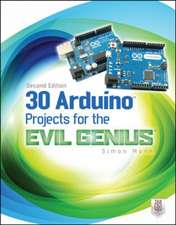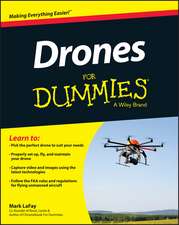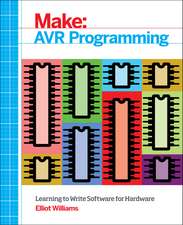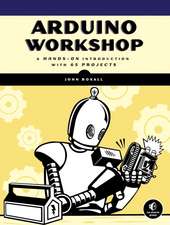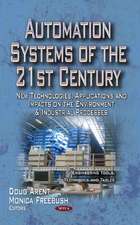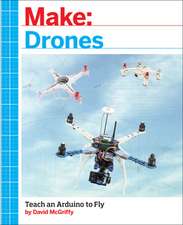Learning with Recurrent Neural Networks: Lecture Notes in Control and Information Sciences, cartea 254
Autor Barbara Hammeren Limba Engleză Paperback – 30 mai 2000
Din seria Lecture Notes in Control and Information Sciences
- 20%
 Preț: 318.81 lei
Preț: 318.81 lei - 15%
 Preț: 633.53 lei
Preț: 633.53 lei - 20%
 Preț: 555.04 lei
Preț: 555.04 lei - 18%
 Preț: 959.98 lei
Preț: 959.98 lei - 15%
 Preț: 696.02 lei
Preț: 696.02 lei - 18%
 Preț: 957.75 lei
Preț: 957.75 lei - 18%
 Preț: 782.42 lei
Preț: 782.42 lei - 18%
 Preț: 894.46 lei
Preț: 894.46 lei - 18%
 Preț: 1111.34 lei
Preț: 1111.34 lei - 20%
 Preț: 347.08 lei
Preț: 347.08 lei - 11%
 Preț: 468.56 lei
Preț: 468.56 lei - 20%
 Preț: 657.16 lei
Preț: 657.16 lei -
 Preț: 387.75 lei
Preț: 387.75 lei -
 Preț: 397.97 lei
Preț: 397.97 lei -
 Preț: 379.86 lei
Preț: 379.86 lei -
 Preț: 394.71 lei
Preț: 394.71 lei -
 Preț: 390.84 lei
Preț: 390.84 lei - 15%
 Preț: 642.51 lei
Preț: 642.51 lei - 15%
 Preț: 648.24 lei
Preț: 648.24 lei -
 Preț: 381.59 lei
Preț: 381.59 lei -
 Preț: 385.62 lei
Preț: 385.62 lei - 15%
 Preț: 641.53 lei
Preț: 641.53 lei - 15%
 Preț: 699.28 lei
Preț: 699.28 lei - 20%
 Preț: 333.72 lei
Preț: 333.72 lei -
 Preț: 379.68 lei
Preț: 379.68 lei -
 Preț: 484.98 lei
Preț: 484.98 lei -
 Preț: 390.63 lei
Preț: 390.63 lei -
 Preț: 423.73 lei
Preț: 423.73 lei -
 Preț: 393.13 lei
Preț: 393.13 lei -
 Preț: 382.36 lei
Preț: 382.36 lei - 18%
 Preț: 737.26 lei
Preț: 737.26 lei -
 Preț: 392.37 lei
Preț: 392.37 lei - 15%
 Preț: 645.28 lei
Preț: 645.28 lei - 15%
 Preț: 637.93 lei
Preț: 637.93 lei -
 Preț: 383.50 lei
Preț: 383.50 lei -
 Preț: 397.59 lei
Preț: 397.59 lei -
 Preț: 407.19 lei
Preț: 407.19 lei -
 Preț: 406.80 lei
Preț: 406.80 lei -
 Preț: 385.08 lei
Preț: 385.08 lei -
 Preț: 387.38 lei
Preț: 387.38 lei -
 Preț: 387.38 lei
Preț: 387.38 lei -
 Preț: 394.71 lei
Preț: 394.71 lei -
 Preț: 391.02 lei
Preț: 391.02 lei -
 Preț: 383.71 lei
Preț: 383.71 lei -
 Preț: 396.62 lei
Preț: 396.62 lei -
 Preț: 382.95 lei
Preț: 382.95 lei -
 Preț: 396.02 lei
Preț: 396.02 lei -
 Preț: 385.08 lei
Preț: 385.08 lei -
 Preț: 384.48 lei
Preț: 384.48 lei -
 Preț: 381.59 lei
Preț: 381.59 lei
Preț: 380.63 lei
Nou
Puncte Express: 571
Preț estimativ în valută:
72.84€ • 75.77$ • 60.14£
72.84€ • 75.77$ • 60.14£
Carte tipărită la comandă
Livrare economică 14-28 aprilie
Preluare comenzi: 021 569.72.76
Specificații
ISBN-13: 9781852333430
ISBN-10: 185233343X
Pagini: 164
Ilustrații: 150 p.
Dimensiuni: 155 x 235 x 9 mm
Greutate: 0.24 kg
Ediția:2000
Editura: SPRINGER LONDON
Colecția Springer
Seria Lecture Notes in Control and Information Sciences
Locul publicării:London, United Kingdom
ISBN-10: 185233343X
Pagini: 164
Ilustrații: 150 p.
Dimensiuni: 155 x 235 x 9 mm
Greutate: 0.24 kg
Ediția:2000
Editura: SPRINGER LONDON
Colecția Springer
Seria Lecture Notes in Control and Information Sciences
Locul publicării:London, United Kingdom
Public țintă
Professional/practitionerCuprins
Introduction, Recurrent and Folding Networks: Definitions, Training, Background, Applications.- Approximation Ability: Foundationa, Approximation in Probability, Approximation in the Maximum Norm, Discussions and Open Questions.- Learnability: The Learning Scenario, PAC Learnability, Bounds on the VC-dimension of Folding Networks, Consquences for Learnability, Lower Bounds for the LRAAM, Discussion and Open Questions.- Complexity: The Loading Problem, The Perceptron Case, The Sigmoidal Case, Discussion and Open Questions.- Conclusion.
Caracteristici
The book details a new approach which enables neural networks to deal with symbolic data, folding networks It presents both practical applications and a precise theoretical foundation

